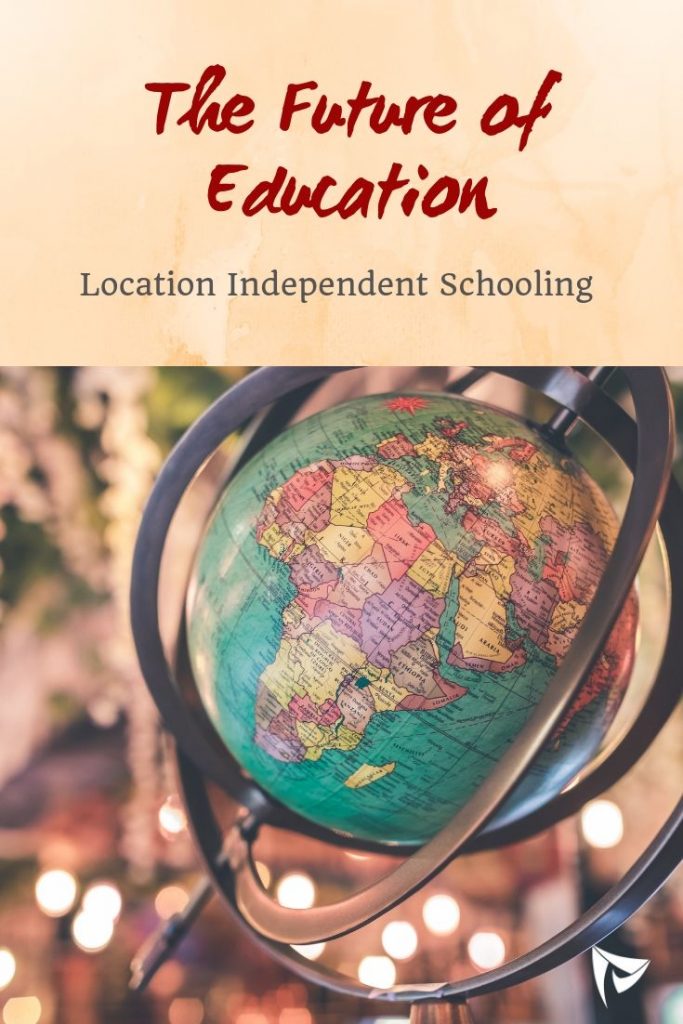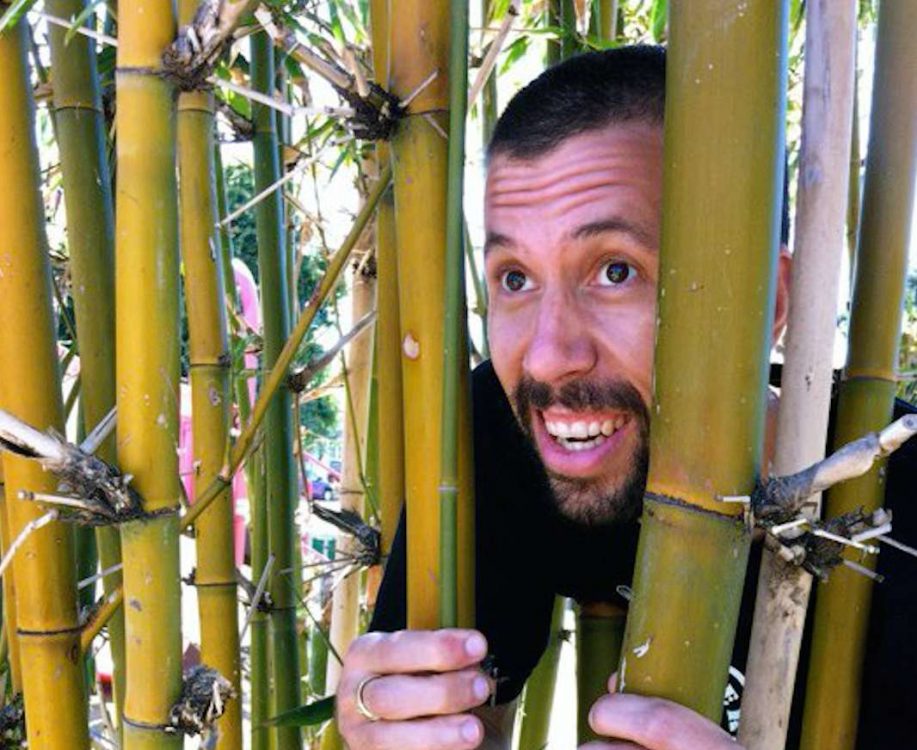
Your 12-step program to let go and discover the world
March 11, 2019
The Esoteric Tourist in search of Meister Eckhart
March 27, 2019A new generation is emerging, and everything we thought we knew about work, school and housing is in for a change of disturbing proportions. You can blame it on the internet. You can blame it on rock and roll music. You can even blame Obama.
Every day, more and more people are opting out of the traditional, prison-like career of crowded cubicles, daily commutes and 40-hour workweeks. Every day, the information industry creates another spate of location-independent jobs, while the next wave of automation crashes down and eliminates another species of service worker or manual laborer.
Not everyone will be affected by this change. Of course, the 20th century is still alive and well in many minds. But those on the forefront have already discovered and embraced a new way of living.
Mobile careers and static schools
The radical phase shift has created a whole spectrum of opportunities that would have been unthinkable only a decade ago. At the same time, it’s presented many young families with an interesting dilemma. On the one hand, their digital careers offer them the freedom to travel anywhere and work from anyplace on earth without missing a deadline. But on the other, their children remain tied down to a fossilized school system that wants to see them in their desks every morning at 8 am, presumably preparing them for the kinds of jobs our parents worked back in the 80s. Good news if they hope to get hired at Blockbuster Video and then go on to work for Kodak.
In the meantime, young creatives seize their freedom and cite overpopulation as a reason not to have kids. Or else they do have kids and end up anchored in the suburbs in an effort to keep their offspring in the best school districts. But even then, these schools are not fostering the kind of openness, creativity and flexibility that the modern, protean economy requires.
Welcome to World Schooling
Finally, a third way is available only to the most reckless mavericks who abandon the school system and teach their kids at home, or bring them along for an adventure in real life learning. Perhaps you saw it coming, but yes, our family has chosen this path of world-wandering maverickism.
So we left the suburbs in 2016 and never looked back. Like any family, we’ve had our ups and downs, but we don’t regret a thing. At the same time, we’re always looking ahead at how we want to continue with our children’s unconventional education. And in doing so, we’ve discovered a vast online community of likeminded families. Calling themselves World Schoolers, they typically work online, live on the road, and educate their children through constant exposure to new cultures and unexpected experiences.
Unlike homeschooling or unschooling, World Schooling doesn’t require you to maintain a curriculum or challenge you to provide a stimulating learning environment. World Schoolers can’t avoid learning. Every day brings new adventures and educational opportunities. The downside, however, is the loss of community. Though you meet new and interesting people all the time, you don’t have that stable community of family friends and aunties and uncles for the kids.
Global Villages
To create or reinforce a sense of community, World Schoolers hold regular meet ups in different places throughout the year, for a week or two at time. It’s a chance to slow down, exchange ideas, and get away from that feeling of “it’s us against the world.” The nomadic life can get lonely sometimes.
As we talk to more and more people, nomads and World Schoolers, we keep hearing the same message, again and again. People want community. People want to live with like minded people. Even if they travel full time, nomadic families want a home base or a safe haven where they can take a pause, connect with others, and feel like they belong. Whether it’s in Europe, Central America or Southeast Asia, people are craving a place to mingle with fellow families and exchange knowledge.
Our family has been visualizing this idea for years, and as our kids grow older, now 5 and 9, we feel a growing sense of urgency. We could spend decades drawing vision boards and splitting hairs over the fine minutia, but now is the time to act. And here’s what we’ve come up with so far.
The World Schools Community Concept
Our mission is to create a learning environment where children are free and safe to discover and pursue their passion for learning. Not a school in the traditional sense, but more than a school. A community and learning center made up of students, mentors, guides and volunteers of all ages, from all backgrounds, from around the world, where we learn by doing.
We intend to work with the local community to create an alternative school that provides a free, democratic and holistic education, oriented around nourishing all of the multiple intelligences. We’ve discovered that these types of schools are in pitifully short supply. While the public school systems are slow — or completely unwilling — to evolve, the demand for more open and progressive education is skyrocketing across the globe.
Our vision is to establish a school that meets both of these needs described above. First and foremost, it will provide an opportunity for private, alternative education in a rural, natural setting, but at an affordable price, not strictly for the elite. Secondly, the school facility will offer accommodations for visiting, nomadic families of any and all nationalities. These international World Schoolers will have a chance to attend the school and to participate in the projects being conducted by the local, permanent students. All parties will reap the benefits of this intercultural exchange.
The visiting World Schoolers will pay for their guest accommodations, service and modest schooling fees as a way to help fund the school. At the same time, the students, in the spirit of hands-on learning, will take a very active part in operating the facility and the grounds. Features will include things like student managed gardens, student run cafe with local ingredients, and student teams or committees to participate in hotel and business management, building and restoration projects, and so on.
At this point we have the possibility of developing an exceptional piece of property in the Spanish Pyrenees for this very purpose. We are working painstakingly to nail down our financial needs and to formulate our fundraising strategies.
So who’s with me?
If you’re interested in contributing to this project in any way, please contact us. You can also subscribe to the blog for regular updates.
FURTHER READING: For more stories about our quest for quality education, check out this series of articles.
- Part I: A year without a principal
- Part II: Out of the classroom and into the wild
- Part III: Paradise Found
- A Directory of Worldschool hubs and communities
- Fundamentals of community building






